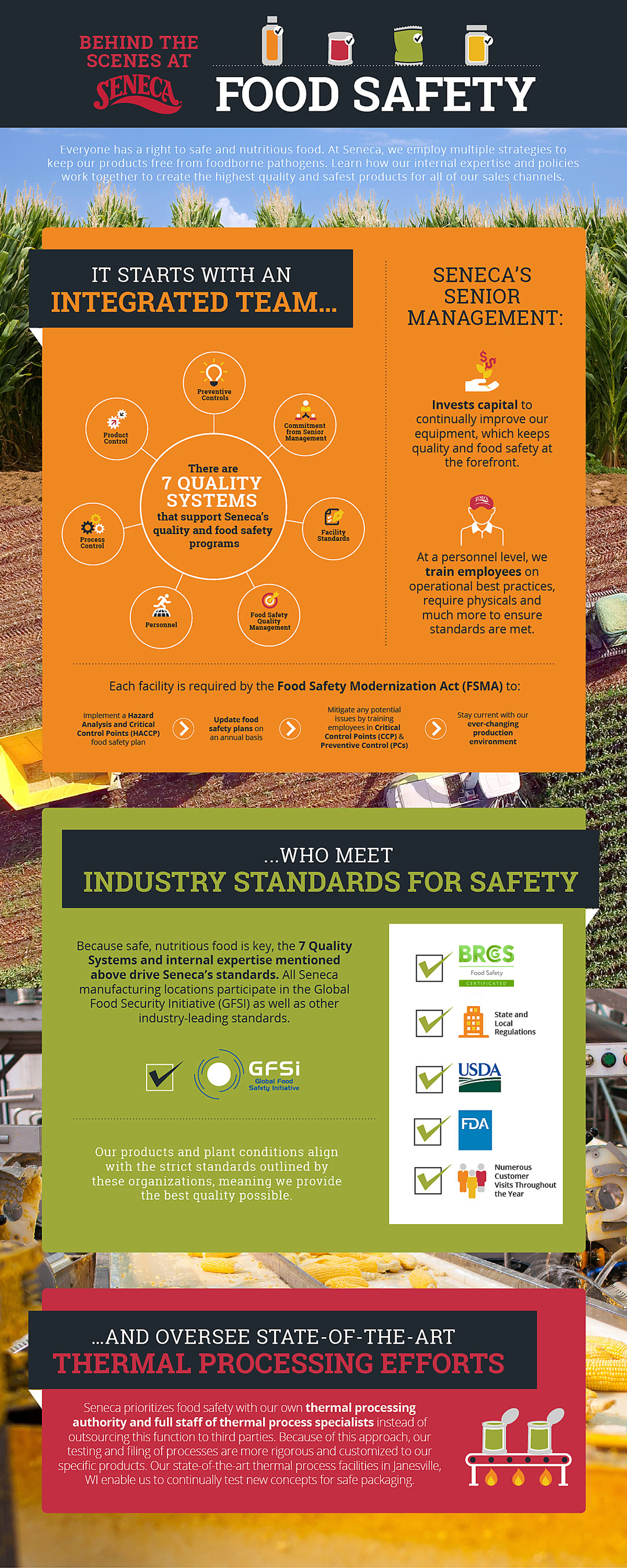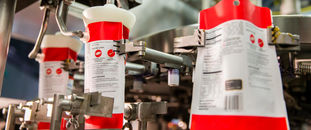Food Safety
Safety is one of the most important aspects of any food processing facility. At Seneca, our commitment comes to life in a number of ways through our quality program.The format of this program empowers all our food handlers to honor their individual roles while working together with other plant teams to ensure safety. Our overall model has its advantages because it relies on specialists—from R&D to thermal processing—to concentrate on areas where they have years of experience while sharing knowledge with others.

Integrated Pest Management (IPM)
Experienced field staff and environmental coordinators are employed at each agricultural location to track and reduce all pesticide applications and ensure consistency throughout our operations.
Integrated efforts between agriculture and operations personnel, plus growers, further leverage plant optimization, making lower pesticide usage possible. We continue to make major investments in agriculture information management systems to help us manage our agriculture practices. These systems, which utilize Global Positioning System (GPS) technology, have helped us be more efficient, and produce less waste when planning and apply fewer pesticides.
We have instituted a full scale IPM that has been instrumental in the reduction of pesticide applications through better field management. Production fields are mapped, surveyed and discussed with growers to protect ecologically sensitive areas.
Food Allergens
We isolate allergenic ingredients to minimize risk and ensure that products with allergenic ingredients are labeled properly.
Sanitation
We maintain a master sanitation schedule and implement standard operating procedures for handlers.
Test Procedures
Microbiological testing occurs at all frozen facilities and analysis is completed on all frozen products, sanitary surveys and environmental surveillance. Plant inspections consist of continuous quality control monitoring with staff at each facility.
Grade Specifications
We utilize Statistical Process Control in attribute grading and fill control with line inspections to determine product defect levels. All products are on a mandatory five-day hold and positive release.
Training
To ensure all equipment, systems and procedures are properly utilized, Seneca requires annual training on HACCP, GMPs, thermal processing, double seams, microbiology, sanitation and chemical handling.
Metal Detectors
We meet all requirements for metal detectors including calibration, testing and how to respond to alarm notifications.
Guarantees
We maintain Certificates of Analysis for each lot of obtained raw materials.
Customer Complaints
We forward any food-related customer complaints to each corresponding facility where leaders are required to take follow-up actions.



